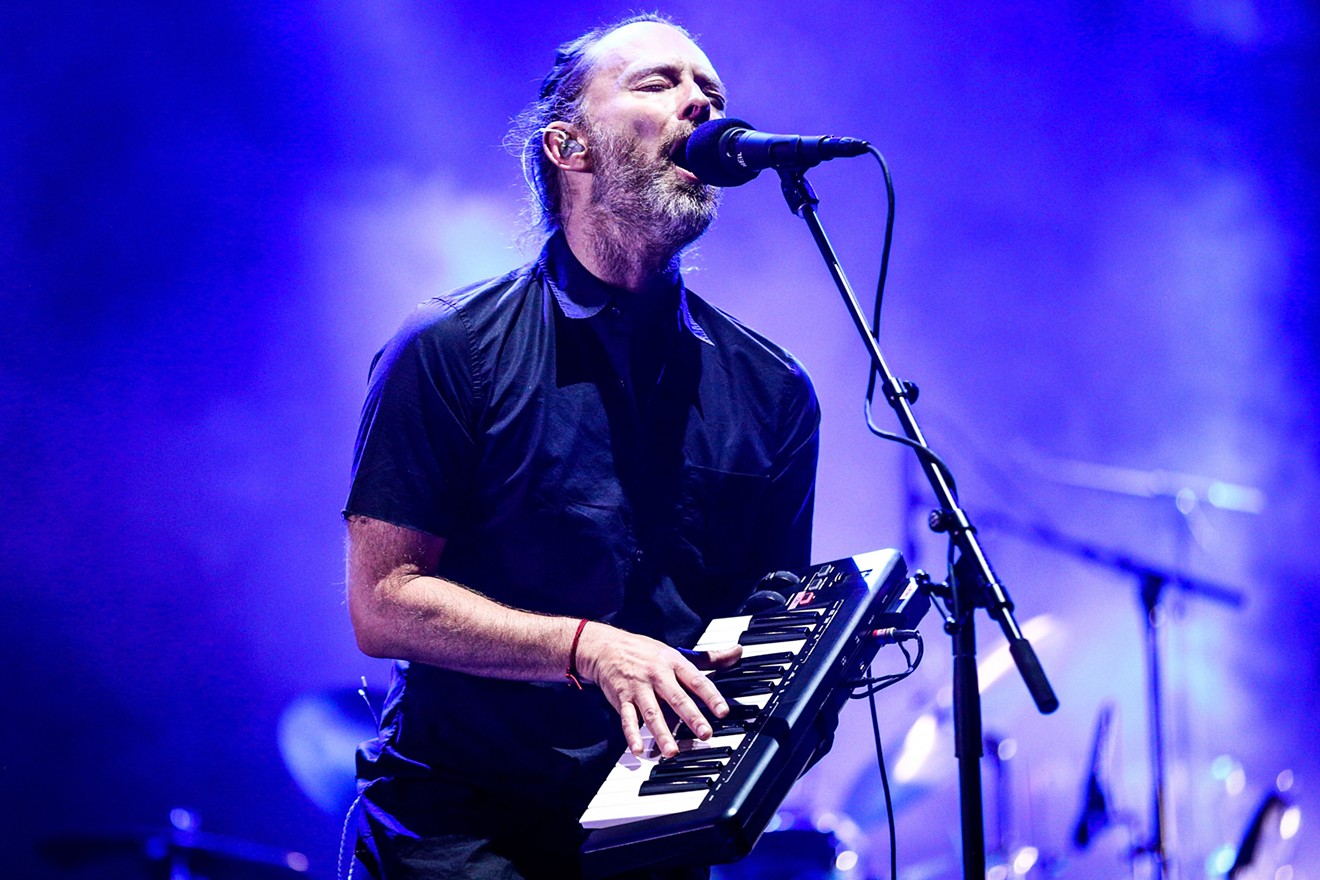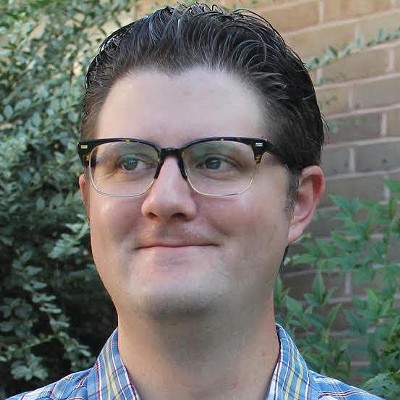“Creep” is also the most reductive version of Radiohead — simple, direct and tightly bound to the sonics of grunge, if not its attitude — and one which barely hints at the band’s evolution.
For a better mid-'90s sense of what Radiohead eventually blossomed into, turn to Pablo Honey’s follow-up, 1995’s The Bends, which just marked its 25th anniversary on March 13.
It’s a sophomore record betraying nary a trace of hesitation or second-guessing. From front to back, it’s a phenomenal document of British rock music near its 1990s apex and an absorbing collection of songs as relevant today as when they were released. The Bends also brought many of the band’s longtime collaborators into the fold for the first time, including Nigel Godrich and Stanley Donwood.
The mix of melancholy, melody and dynamics on display is astonishing, particularly when you consider frontman Thom Yorke and his band mates were already feeling fried before heading back into the studio to make The Bends.
“Creep” is also the most reductive version of Radiohead — simple, direct and tightly bound to the sonics of grunge, if not its attitude — and one which barely hints at the band’s evolution.
tweet this
“I’m fucking ill and physically, I’m completely fucked and mentally, I’ve had enough,” Yorke told NME in 1993, just before the sessions for The Bends. Atop that reality was the simple fact that Radiohead was under enormous pressure to deliver a second record capitalizing on the success of “Creep,” expanding its fan base without repeating itself.
Second only to 1997’s OK Computer, no other Radiohead album showcases the band’s strengths as well as The Bends.
All of its beloved traits are present: Yorke’s scabrous lyrics, lashing out at a society so distracted by the mundane that it’s sealed itself off from feeling (“You do it to yourself, you do/And that’s what really hurts,” he sneers on “Just”), while Jonny Greenwood, Colin Greenwood, Ed O’Brien and Philip Selway blend seamlessly behind him, a precisely calibrated machine as comfortable with delicacy as it is bombast.
Indeed, The Bends easily oscillates between the serene and the serrated: Luminous highlights “Fake Plastic Trees,” “High and Dry,” “Bullet Proof … I Wish I Was” and “(Nice Dream)” float along like lullabies, while “Just,” “Sulk,” “My Iron Lung” and the pummeling opener “Planet Telex” slam into the listener, a wall of distorted guitars and raw emotion capable of leaving a mark.
It’s a tension Radiohead continues to sustain a quarter-century on, having established the template on The Bends. Yorke’s preoccupation with human connection has only intensified in the intervening years, as has the band’s comfort with keeping its fans on their toes, veering between abstract sound collages and straightforward rock songs.
Rather than drown in the success of its first big hit, Radiohead — a group of five musicians who have always known exactly who they are and how they want to make music — rode the wave into a future that turned out to be very fuckin’ special.












